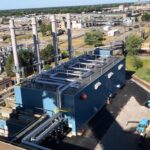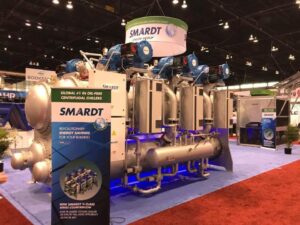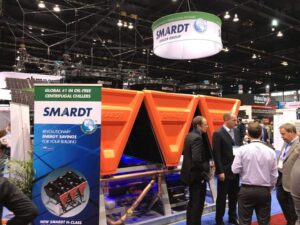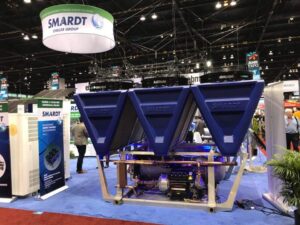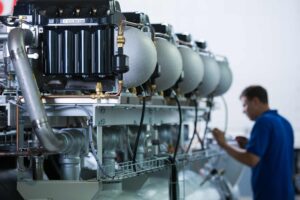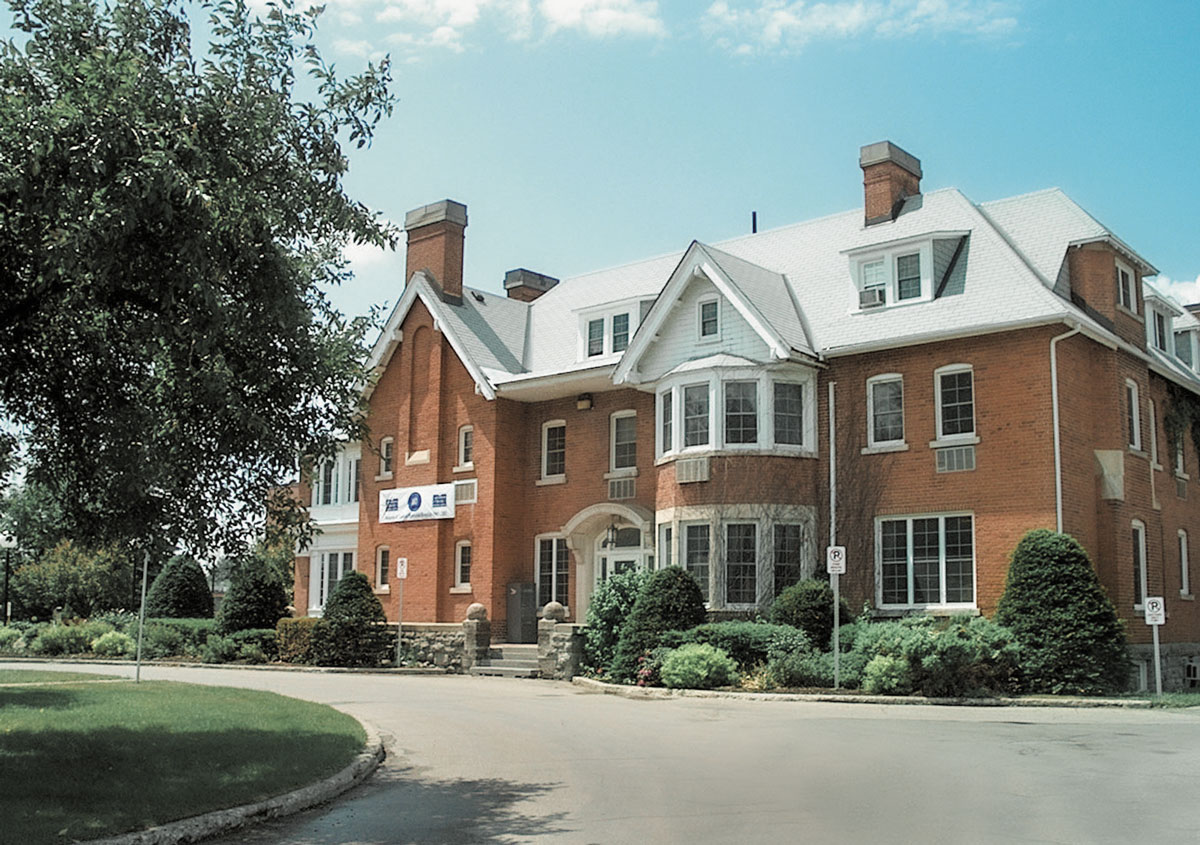
Arnprior & District Memorial Hospital in Ontario, had been working with the Ministry of Health for several years to replace their existing chiller.
Besides the fact that the chiller was 37 years old, they had a number of issues that required solving.
The Challenge
The existing chiller used a refrigerant, which was being phased out as per provincial legislation. The aging chiller was not energy efficient and incurred increasing maintenance and repair costs to keep it functional. There were also capacity limits that would be an issue with future expansion of the hospital. In addition, the chiller was also at risk of failure due to its increasing age and there were no redundancy systems in place should failure occur.
Possible Solutions considered
Arnprior Hospital hired McKee Engineering to consider options for replacement.
McKee Engineering submitted a report to Arnprior Hospital that provided two options to replace the existing chiller. The first option suggested two new water-cooled centrifugal chillers. Although this option had the lowest initial cost, it required some civil work to get the chillers into the existing mechanical room. The manufacturer also added the cost of taking the chillers apart at the factory and reassembling them at the site. Also, this option had higher life cycle costs over the life of the chiller.
The Smardt Solution
The second option involved installing three new water-cooled SMARDT “modular chillers”. Although the initial cost of the equipment is higher for this option, no civil work is required to install the new chillers in the mechanical room.
There are also no assembly costs, as the modular SMARDT chillers can be shipped in pieces from the manufacturer and assembled on site. Since the option involves three 80 ton chillers, the issue of redundancy is solved. Also, one of the 80 ton chillers can be connected to the hospital’s emergency power generator. This option is more energy efficient and has lower “life cycle” and “return on investment” costs over the life of the chiller. Since SMARDT chillers do not use oil, maintenance costs are 60% lower versus chillers that use screw or centrifugal technology.
Conclusion
McKee Engineering recommended that Arnprior Hospital go with the SMARDT chillers. Since the SMARDT chillers are modular, the overall capital costs were lower because the civil requirements were greatly reduced during installation. The life cycle analysis favoured the SMARDT chillers, as the maintenance and repair costs are 40% lower over the life of the chillers. Energy savings were estimated at approximately $7,000 per year.

